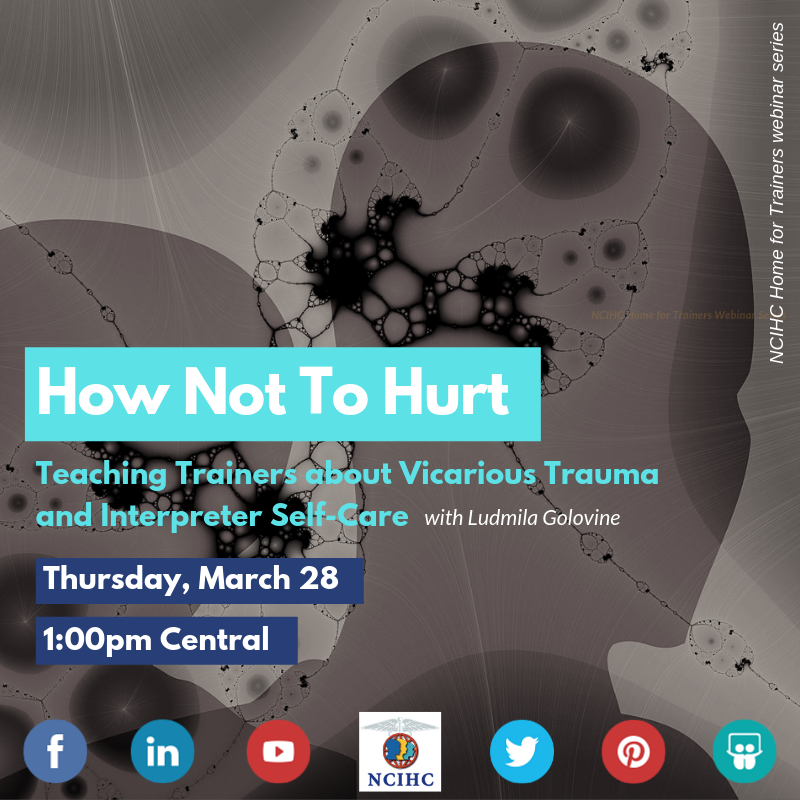How Not To Hurt: Teaching Trainers about Vicarious Trauma and Interpreter Self-Care
One challenge faced by professional interpreters working in healthcare and other settings is the high levels of stress, vicarious trauma, or vulnerability they may feel during the course of their everyday work. Vicarious trauma has been identified as something that affects the performance and wellbeing of certain professionals, such as interpreters, by their experiencing or internalizing someone else’s trauma. Research has confirmed they are vulnerable to vicarious trauma, burnouts, compassion fatigue, or secondary stress as a result of repeated exposure to various traumatic information and experiences.
Drawing from over 25 years of experience in a professional services industry and extensive research in this area, Ludmila “Mila” Golovine, Founder, President & CEO of MasterWord, a Language Services Provider agency, and an interpreter herself, will speak on the subject of vicarious traumatization not from a scientific but from an insider’s point of view - as a representative of a profession that is vulnerable to this type of trauma. Participants will be provided with real-life applications and tools that can help identify and examine triggers leading to vicarious trauma impacting the wellbeing and performance of service professionals, as well as strategies for helping others, and themselves, prevent and/or mitigate the effects of vicarious trauma before, during and after these interactions.
Interpreter trainers will gain an understanding of the particular vulnerability of interpreters to being impacted by the experience of patients that they interpret for. Trainers will also gain insight into the need and method for introducing this material to their students.
Learning Objectives:
- Define vicarious trauma and articulate why those working in healthcare and social services settings are at greater risk for vicarious trauma
- Articulate the potential impact of vicarious trauma on work performance and quality of life
- Identify five coping strategies in effective self-care
- Discuss ways that trainers can apply these concepts in interpreter training programs
About the presenter:

Ludmila Golovine is President/CEO of MasterWord Services, Inc., a global language solutions company that embodies Golovine’s commitment to doing business with heart. An adherent to meditation practice, Golovine integrates mindfulness trainings throughout MasterWord’s operations. As a professional interpreter, Golovine knows first-hand how interpreting, especially in the healthcare, social services, education, and legal arenas, may present challenges such as compassion fatigue and vicarious trauma. For the past 10 years, she has applied her skills as a Certified Neuro-Linguistic Programming Practitioner and a Trained Demartini Method Facilitator to tirelessly help promote health and wellness to those in the language services industry, decrease burnout and increase longevity in this profession. She has given numerous presentations at professional conferences, hospitals, and universities, as well as to professional interpreter audiences.
|




